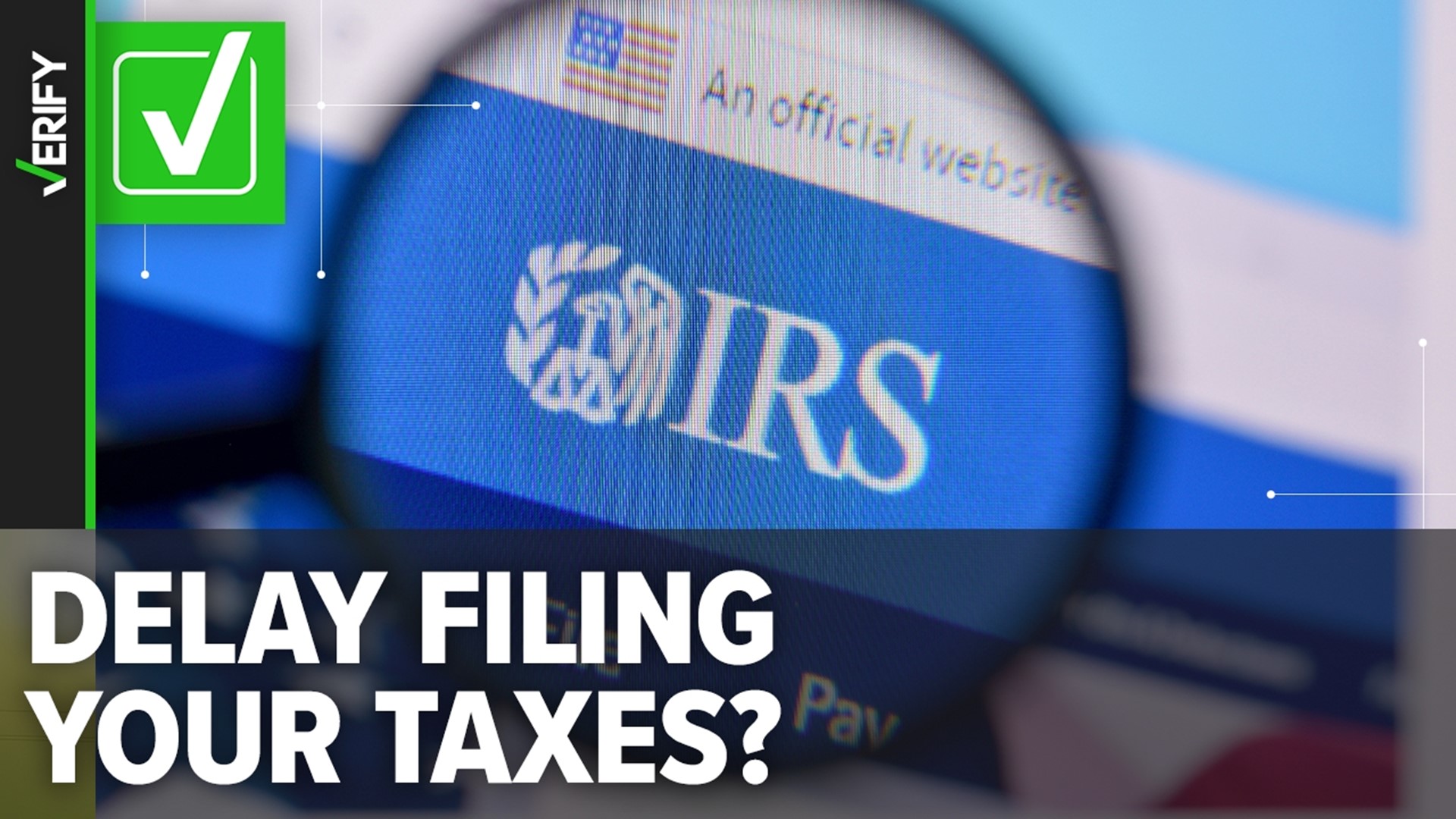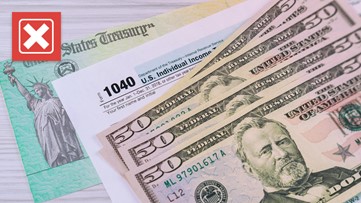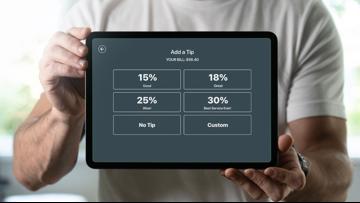UPDATE: On Feb. 10, 2023, the IRS issued updated guidance for tax filers in states that issued special payments last year. The federal agency said "taxpayers in many states will not need to report these payments on their 2022 tax returns." You can find the latest information here. The story continues as originally published below:
Some people who received tax rebates or other relief payments from their state in 2022 are experiencing confusion while trying to file their income tax returns.
“So I tried to sit down this morning for a fun game of Do Your Taxes, but turns out the IRS hasn’t decided if California’s Middle Class Tax Relief payments are taxable or not,” one person wrote in a tweet on Feb. 5.
Some accounting and tax professionals have since claimed online that the IRS is “cautioning taxpayers in states that offered special tax refunds or payments to wait to file their income tax returns.” Online search data also show people are wondering if this is true.
THE QUESTION
Is the IRS recommending that people in some states wait to file their tax returns?
THE SOURCES
- Internal Revenue Service (IRS)
- Tom O’Saben, director of tax content and government relations with the National Association of Tax Professionals
- Mark Steber, chief tax information officer at Jackson Hewitt
- Jared Walczak, vice president of state projects for the Tax Foundation
- Letter from U.S. Rep Kevin Kiley (R-Calif.) to IRS Commissioner Doug O’Donnell
- Idaho State Tax Commission
- New Mexico Taxation and Revenue Department
THE ANSWER
Yes, the IRS is recommending that people in some states wait to file their tax returns.
WHAT WE FOUND
The IRS says people who received state tax rebates or other relief payments, and are unsure whether they are taxable, should wait to file their 2022 return until the federal agency can provide additional guidance.
“There are a variety of state programs that distributed these payments in 2022 and rules surrounding them are complex,” the IRS said in a statement on Feb. 3.
Initial guidance for taxpayers is expected this week, a spokesperson for the IRS told VERIFY.
At least some taxpayers in as many as 22 states received rebate checks in 2022, Jared Walczak, vice president of state projects for the Tax Foundation, wrote. Those states include: Alaska, Arkansas, California, Colorado, Connecticut, Delaware, Florida, Georgia, Hawaii, Idaho, Illinois, Indiana, Maine, Massachusetts, Minnesota, New Jersey, New Mexico, New York, Oregon, Rhode Island, South Carolina, and Virginia.
The IRS is working to determine whether the state tax rebates and other payments are subject to federal income tax, Tom O’Saben, director of tax content and government relations with the National Association of Tax Professionals, explained.
Mark Steber, chief tax information officer at Jackson Hewitt Tax Service, added that the payments are “categorized differently in each state – some as inflation relief, others as disaster relief, or even an advance on a state tax credit.”
“Because each state is unique, it’s taking the IRS a moment to determine if these are taxable or tax exempt,” Steber said.
Anyone who has already filed their income tax return shouldn’t amend it until the IRS releases further guidance, O’Saben said.
More from VERIFY: Yes, you can file your taxes for free
The IRS announcement comes after U.S. Rep. Kevin Kiley (R-Calif.) sent a letter to Commissioner Doug O’Donnell requesting clarification on the federal taxability of California’s middle-class tax refund payments.
“Many of the 16 million residents of California who received the refund are unable to file a 2022 tax return because they do not have clear guidance as to whether to include this payment,” Kiley wrote in the letter.
Some states that sent income tax rebates or other relief payments in 2022 have clarified that the money isn’t taxable at the state level, but it might be federally taxed.
For example, Idaho’s State Tax Commission said its rebates are “handled exactly like regular refunds” and won’t be taxed at the state level. But those rebates “might be taxable on the federal level,” according to the state agency.
New Mexico’s Taxation and Revenue Department also said the rebates and relief payments sent to its residents are not taxable income at the state level. But the department added that it “cannot comment on any federal tax consequences of the rebates and relief payments.”












